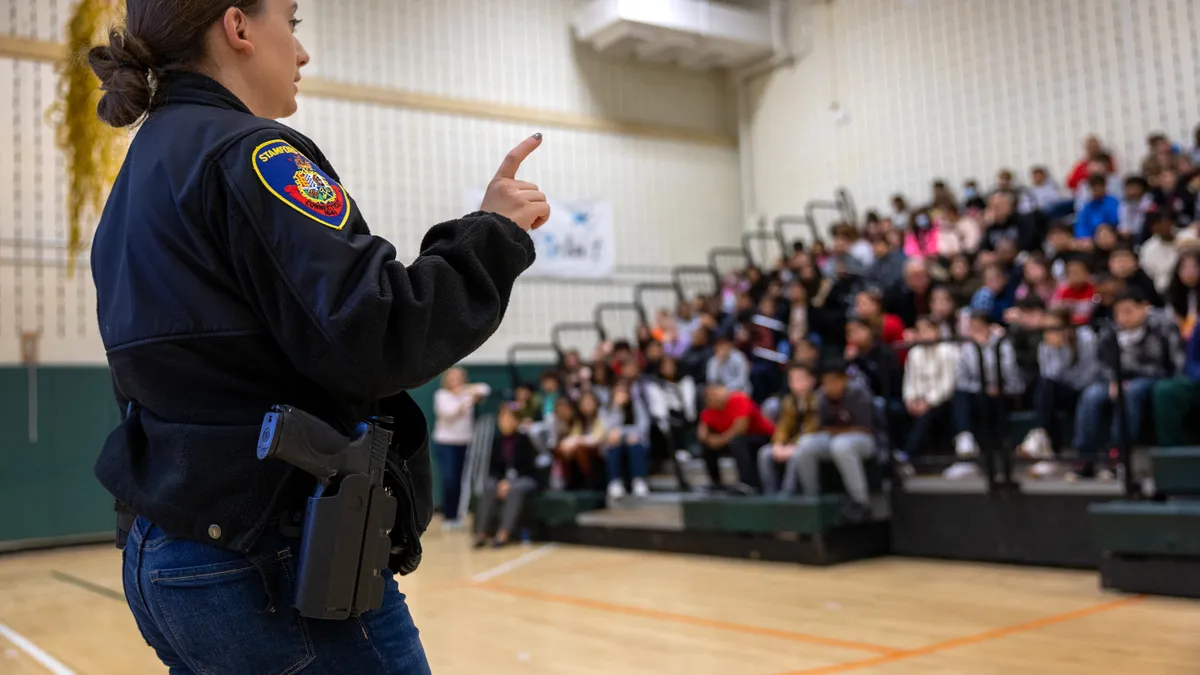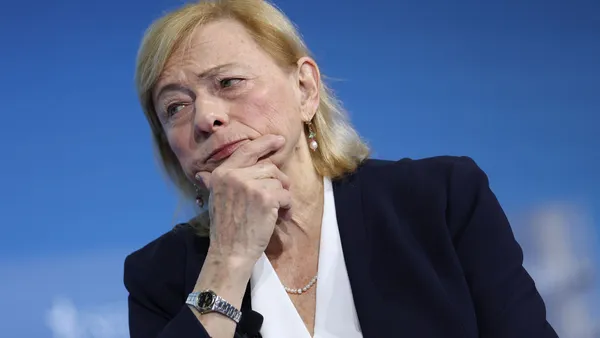Dive Brief:
-
In light of recent school shootings, multiple districts nationwide are reconsidering decisions to sever or scale back ties with local police forces for school resource officers. Many districts made those decisions in 2020 following police brutality protests.
-
Following a school shooting in March, Denver Public Schools temporarily suspended its 2020 police ban until this month, when the board is expected to consider long-term plans to reintroduce police in school buildings with additional guidelines in place.
-
Other districts that previously suspended partnerships with school resource officers in the wake of protests over the police-involved killings of Black Americans — including school systems in California and Oregon — have also considered bringing back police over the past year in response to violence in schools.
Dive Insight:
Initiatives to dismantle school resource officer programs after the murder of George Floyd and the killings of other Black Americans at the hands of police notably slowed in 2021, when school districts began reintroducing SROs with modifications or putting in place similar alternative programs.
An increase in school violence post-pandemic and record high number of school shootings in 2022 have prompted districts to go back to the drawing board and further consider police officers’ role in schools.
According to the K-12 School Shooting Database, there have been 178 shootings on school grounds in 2023, as of June 8. That’s more than half of the 304 shootings in 2022, which saw an unprecedented high in school shootings compared to previous years.
The effectiveness of SROs as a component of school safety has long been debated, with advocates saying they can be deterrents to school violence and critics saying they negatively impact students of color.
Research published in 2022 by the Annenberg Institute at Brown University found school police don’t prevent school shootings or gun violence in schools. It also identified a correlation between their presence and higher rates of suspension, expulsion, arrests and police referrals for Black students, as well as chronic absenteeism rates for students with disabilities.
However, school police seemed to help with general safety by decreasing unarmed violent offenses like fights. In a finding that researchers said should be interpreted with caution, the chances of firearm-related incidents on school grounds were also found to have marginally increased with the presence of school officers.
In 2021, Mo Canady, executive director of the National Association of School Resource Officers, described the initial announcements of SRO contract changes as "knee-jerk” reactions in light of civil rights protests.
Since then, changes to SRO programs — rather than full removals — have included altering uniforms to more approachable "soft" designs, taking away arrest powers, and having on-call SROs available to help when needed rather than in the building full-time.
Denver Public Schools, for example, is considering an option that would have community resource officers who are assigned to regions and called to buildings only when necessary. A separate proposal in front of the board includes deploying soft uniforms but allowing SROs with arrest powers on campus for overall safety, de-escalation and crime deterrence.
The district has until June 30 to finalize a long-term plan, after which the district’s 2020 ban on school police will be reinstated.








 Dive Awards
Dive Awards






